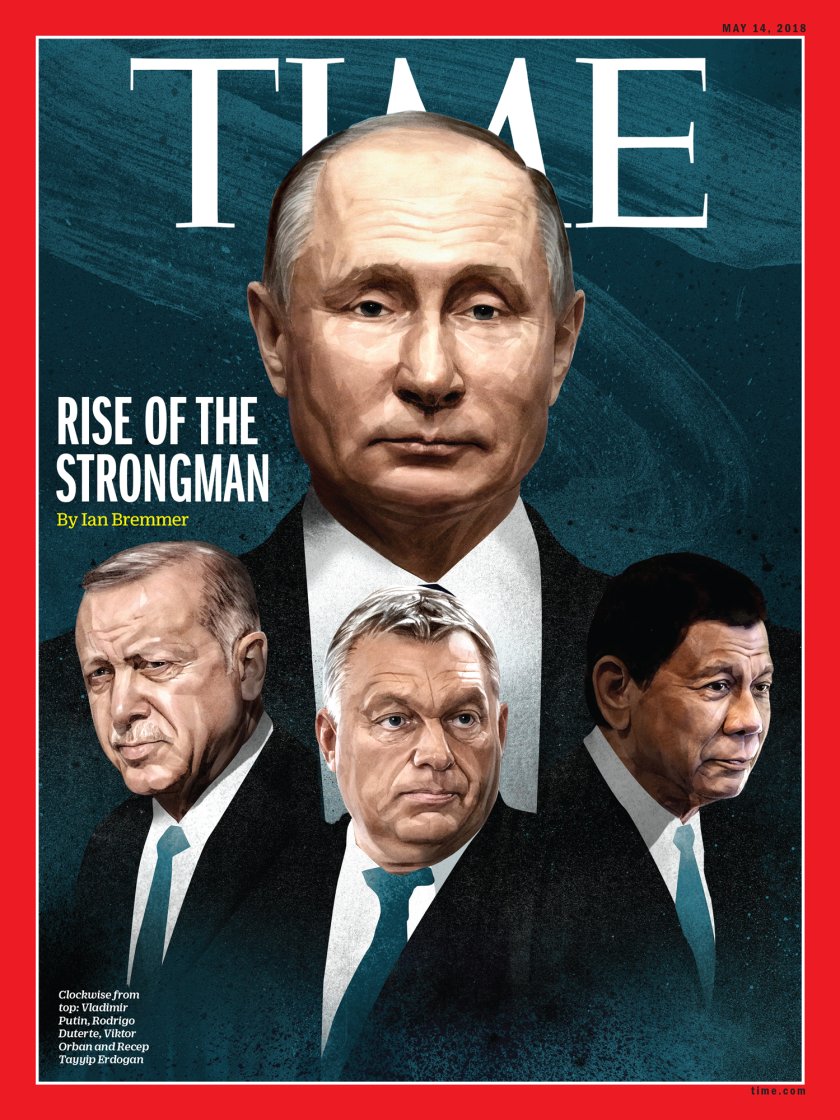
The Leadership Imperative
“Across the world – from Russia to China and from India to Egypt (and now the US) – macho leadership is back in fashion.” – Gideon Rachman
Across the world, authoritarianism is taking center stage, driven by rising populism and a growing mistrust of democratic systems. There is no better example of this than the emergence of Donald Trump as the President of the US, once considered to be the “Leader of the Free World”. This cult of the ‘strongman’ leader extends beyond the realm of policy to corporate leaders reacting to the unintended consequences of disruptive innovation, the ever-increasing demands of corporate citizenship, and the rising political risk to bottom lines from the surge in populism in western democracies.
The fascination with strongmen and growing popularity globally is particularly worrying for Africa. The collective post-colonial trajectory of its nations, has been hijacked by the tight grip of successive dictators, authoritarian leaders and ‘strongmen’, who arguably, have failed to translate the Continent’s potential into a meaningful reality. This style of leadership has resulted in unstable macroeconomic environments, infrastructure deficits, policy inconsistency, and rendered institutions weak, resulting in a pervasive under achievement of African nations.
In all its manifestations, leadership is at the heart of this issue, as the main determinant of social and economic progress of a nation. As one reflects on this global leadership trend, it is important that African citizens takes heed of lessons learned from their past and be intentional about defining what type of leaders will best serve the Continent going forward. The leaders that emerge will ultimately have vast consequences for the pace of economic, political and social development as we step into the fourth industrial revolution, which is gaining momentum.
In discussing the leadership imperative in Africa, employing some degree of generalization becomes inevitable. This is done with caution and with an appreciation that country-specific nuances should always take precedence over generalizations.
The Leadership Imperative
“We now stand at a crossroads, a moment in time in which two very different visions of humanity’s future compete for the hearts and minds of citizens around the world” – Barack Obama
Globalization is the reality of our day and age. There is increasing economic, social, technical, cultural and political interdependence between nations. With this has brought demographic change, rising inequality and a greater exposure to global macro-economic shocks.
Despite half a century of political independence, Africa remains the continent facing some of the most complex challenges in the globalized world. Firstly, an escalating tension between narrowly interpreted African values, and a progressive global identity. Secondly, a post-colonial autonomy that has paved the way for ‘home-grown’ governance and leadership ideals that rival Western conventions of leadership. Finally, the promotion of African interests and a gradual distancing from global geopolitics.
These challenges have created the enabling environment for the emergence and entrenchment of vested interests and rent seekers, that have monopolized private sector and political leadership and shaped the post-colonial discourse to a large extent. The consequences of this leadership failure, have been profound.
In my view, leadership at all levels must now embrace the fundamental principles of true servant leadership, extreme accountability and radical courage, in order to drastically influence the fortunes of nations on the continent. The question of leadership applies to leaders at all levels – politicians, business leaders and civil society. The role of each of these players is critical and self-reinforcing.
 President Barack Obama makes a statement to the press after meeting with democratically elected African heads of state including, from left, President Mahamadou Issoufou of Niger, President Boni Yayi of Benin, President Alpha Condé of Guinea, and President Alassane Ouattara of Cote D’Ivoire, in the Cabinet Room of the White House, July 29, 2011. (Official White House Photo by Samantha Appleton)
President Barack Obama makes a statement to the press after meeting with democratically elected African heads of state including, from left, President Mahamadou Issoufou of Niger, President Boni Yayi of Benin, President Alpha Condé of Guinea, and President Alassane Ouattara of Cote D’Ivoire, in the Cabinet Room of the White House, July 29, 2011. (Official White House Photo by Samantha Appleton)
True Servant Leadership
“For to be free is not merely to cast off one’s chains, but to live in a way that respects and enhances the freedom others.” – Nelson Mandela
During the anti-colonial struggle, self-determination and indigenous leadership were presented as the solutions to Africa’s unique challenges. Unfortunately, in many African countries, a leadership structure has emerged in which leaders don’t serve; they are served, because occupying leadership positions make leaders superior and unaccountable to the people they lead.
Nelson Mandela, arguably one of the greatest leaders Africa has seen in its recent past, exemplified servant leadership. Building on the example set forth by Mandela, a new leadership style must emerge, one which seeks to build inclusive systems and offer opportunities for all community stakeholders, with an unwavering focus on the collective well-being of the communities they serve.
One must re-instill a respect for the core values of duty, honor, a commitment to serve, a desire to consciously forgo opportunities to advance self or other narrow interests, and the competence to bring these values to bear in a manner that creates change and sustains social progress.
Extreme Accountability
“You cannot escape the responsibility of tomorrow by evading it today.” – Abraham Lincoln
Accountable leadership can provide the massive transformation Africa needs to be competitive in the globalized world. Most African leaders have demonstrated weak personal accountability and have failed to deliver the basic needs of their citizens.
Civil society leaders must take up the mantle to fight the endemic corruption that has debilitated nations. This includes creating a new narrative that strives to create a common goal and destiny around which citizens can unite and strive together for progress. This is a marked departure from the narrow views that have been propagated by leaders to fuel the ethnic and religious-identity irredentism that has dominated the domestic political space in many African countries.
In democracies, the citizens have a responsibility to uphold accountability. While leaders shape the destinies of nations, the citizens in functioning democracies, play an important role in acting as a check on leadership performance. In those countries where contemporary African leaders are not performing, the onus is on its citizens to call them to order and stand up for their own futures.
Radical Courage
“Courage is not simply one of the virtues but the form of every virtue at the testing point, which means at the point of highest reality.” – C. S. Lewis
Transformational, accountable, servant leadership, requires a tremendous level of courage. It is time for leaders on the Continent to be bold and fearless in the pursuit of a collective agenda to move their respective nations forward and to break away from the shackles of legacy and to forge a new path forward.
Transformation in a fast changing, interconnected global economy requires leadership with courage and conviction. In the domestic setting, it demands courage to undermine vested interests and to take a stance against the opaque political and commercial worlds, where access involves compromising patterns of patronage, and where it is not conducive to safe, alternative forms of political expression. In the global setting, it requires courage to take on a role on the global stage and to demand the establishment of a more equitable system of partnership between Africa and the rest of the world.
In the area of business and entrepreneurship, we have seen courageous and admirable leadership by African entrepreneurs who are competing to alter the narrative from one of poverty and foreign aid to one of creativity and wealth creation. However, this is far from enough. As Ory Okolloh aptly put it, ‘You can’t entrepreneur around bad leadership, we can’t entrepreneur around bad policy.’ As Rachel Adams argues Africa’s crisis is not a crisis of leadership ‘our crisis is a crisis of youth in danger of never knowing the power of their courage.’

Call to Action to Catalyze Transformation
African leaders must face the fierce urgency of now to catalyze the change and transformation required to stimulate progress. This requires a new crop of leaders in every sector, not just politics and the government. This transformation leadership framework demands the emergence of a new generation of leaders—bold, patriotic, detribalized and globally-minded. It requires a critical reorientation and crucial rehabilitation of Africa’s mental model that shifts focus from the self-serving, strongman, authoritarian leadership to one underpinned by true servant leadership, extreme accountability and radical courage.
This historical moment calls for African youth to step up and take leadership to create the future they so deeply desire. As the reality of the fourth industrial revolution gains momentum, Africa’s youth leaders must harness the power of technology, information and networks to build the institutions and infrastructure that speaks to their ideals and vision for the future.Failing to do so will result in the Continent getting left behind of the technology revolution further increasing the gap with the rest of the world.
In turn current African leaders must harness and unleash the potential of its burgeoning youth by addressing the barriers which inhibit the emergence of young leaders and their ability to influence the transformation of the continent. As such, there is a need to democratize this leadership development process in Africa. Formal and informal leaderships across all levels in society cannot be a luxury afforded only to the elite, it needs to be an inclusive process through the propagation of inclusive political and economic structures.
The economic, political and social progress across African countries are ultimately the responsibility of African leaders. It is essential that countries look inwards and take responsibility for driving their own destiny; even in a globalized world, sovereignty and the corresponding authority and responsibilities that come with it are still central. There is an opportunity for African leaders to emerge and provide an alternative example to the rest of the world, an opportunity to innovate a distinctly-African form of leadership from what Mandela termed the ‘endless heroism of youth.’






